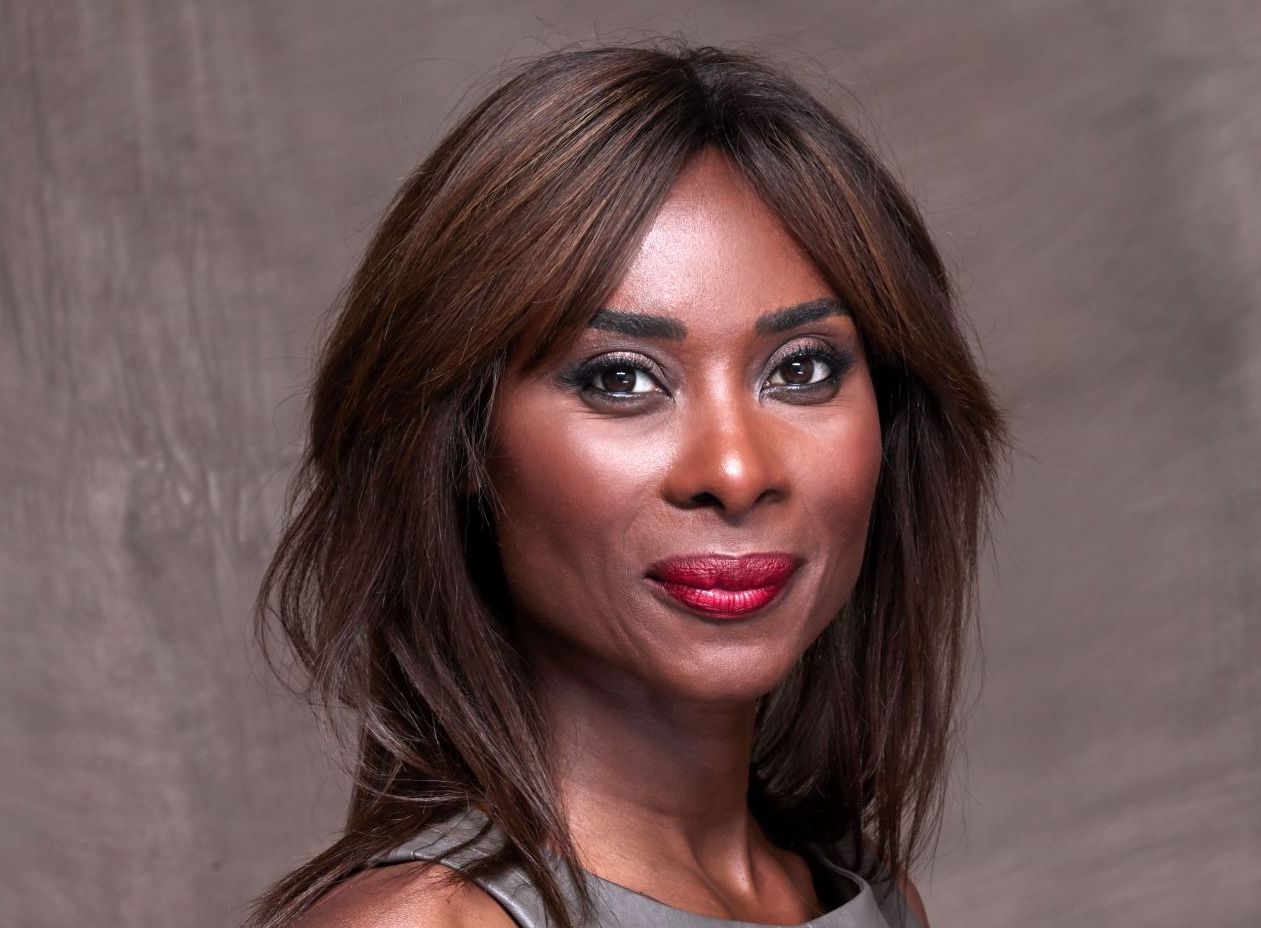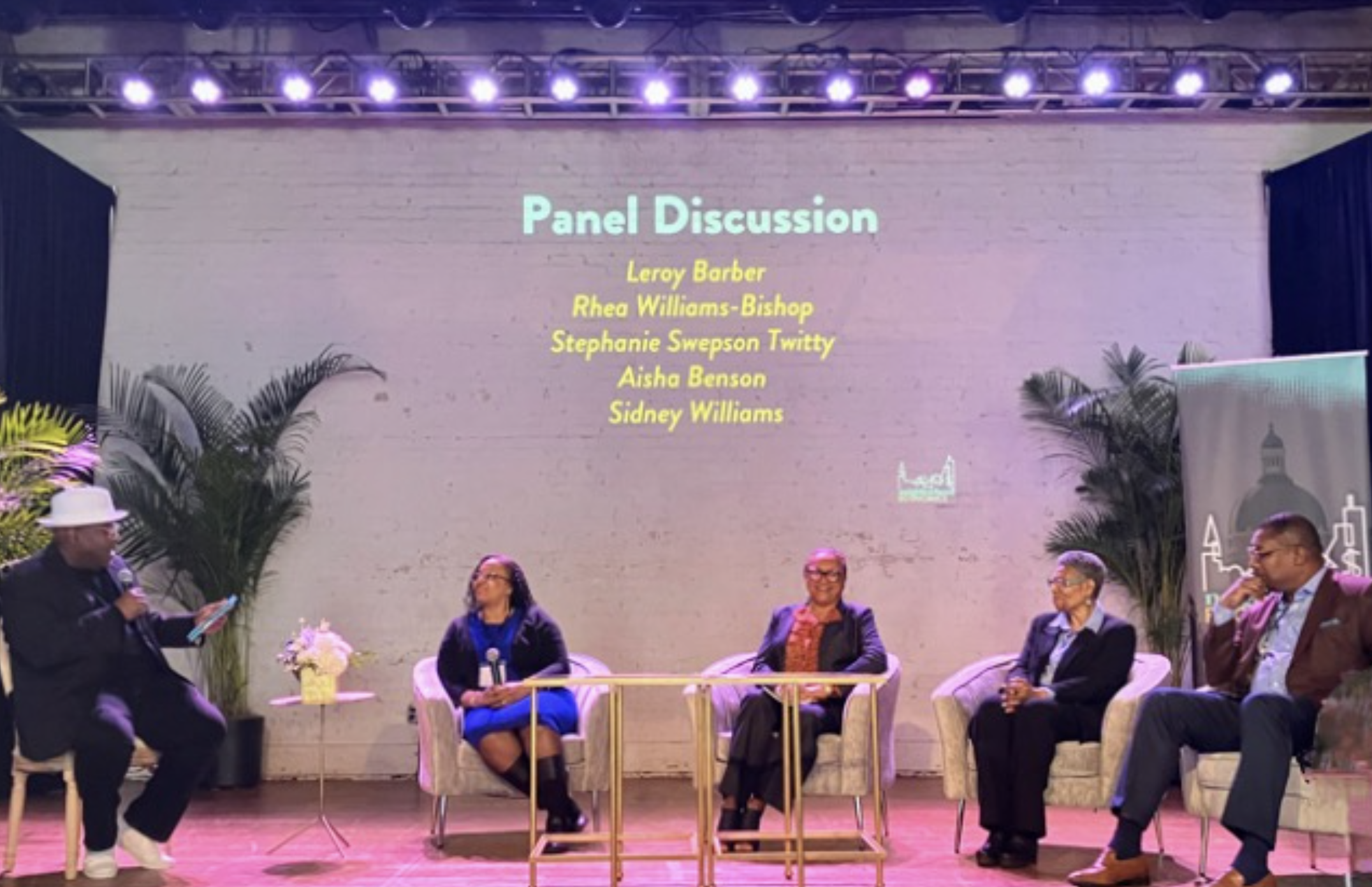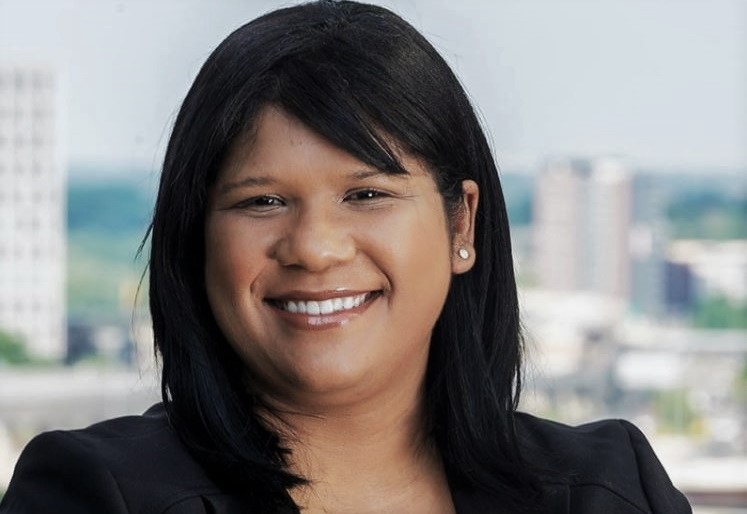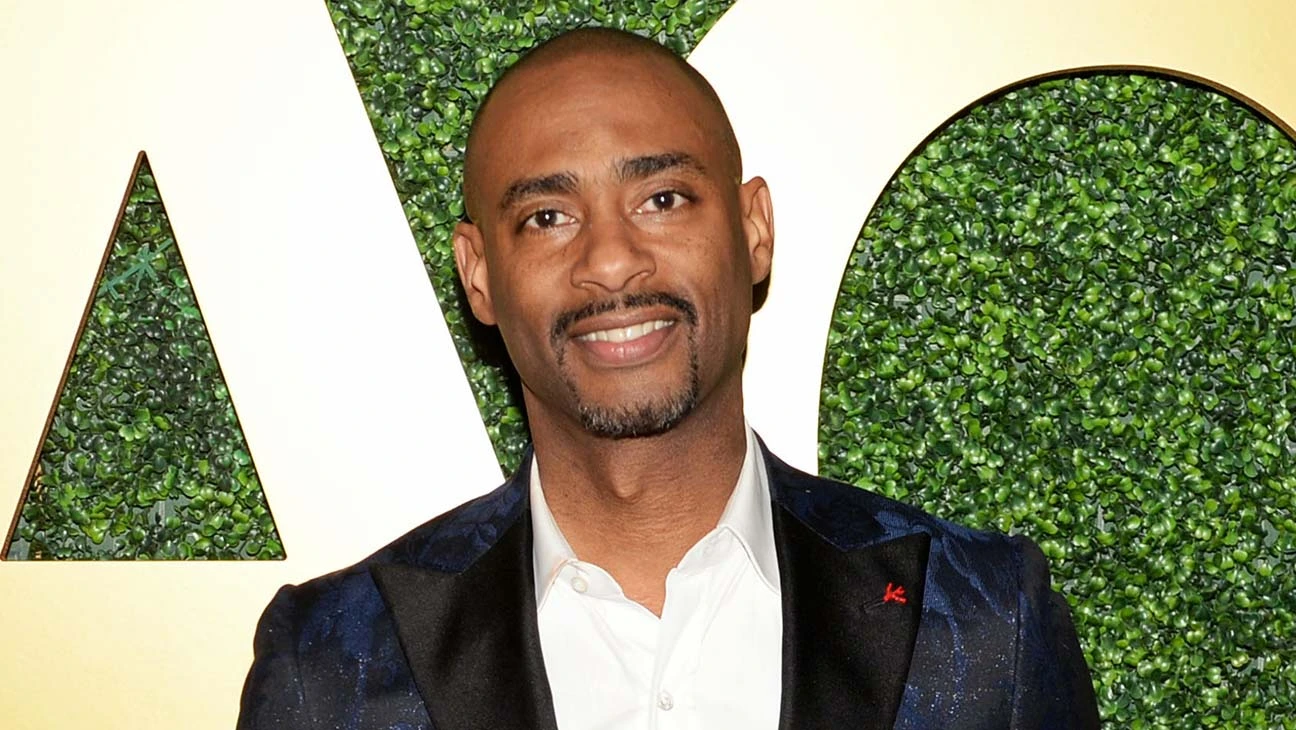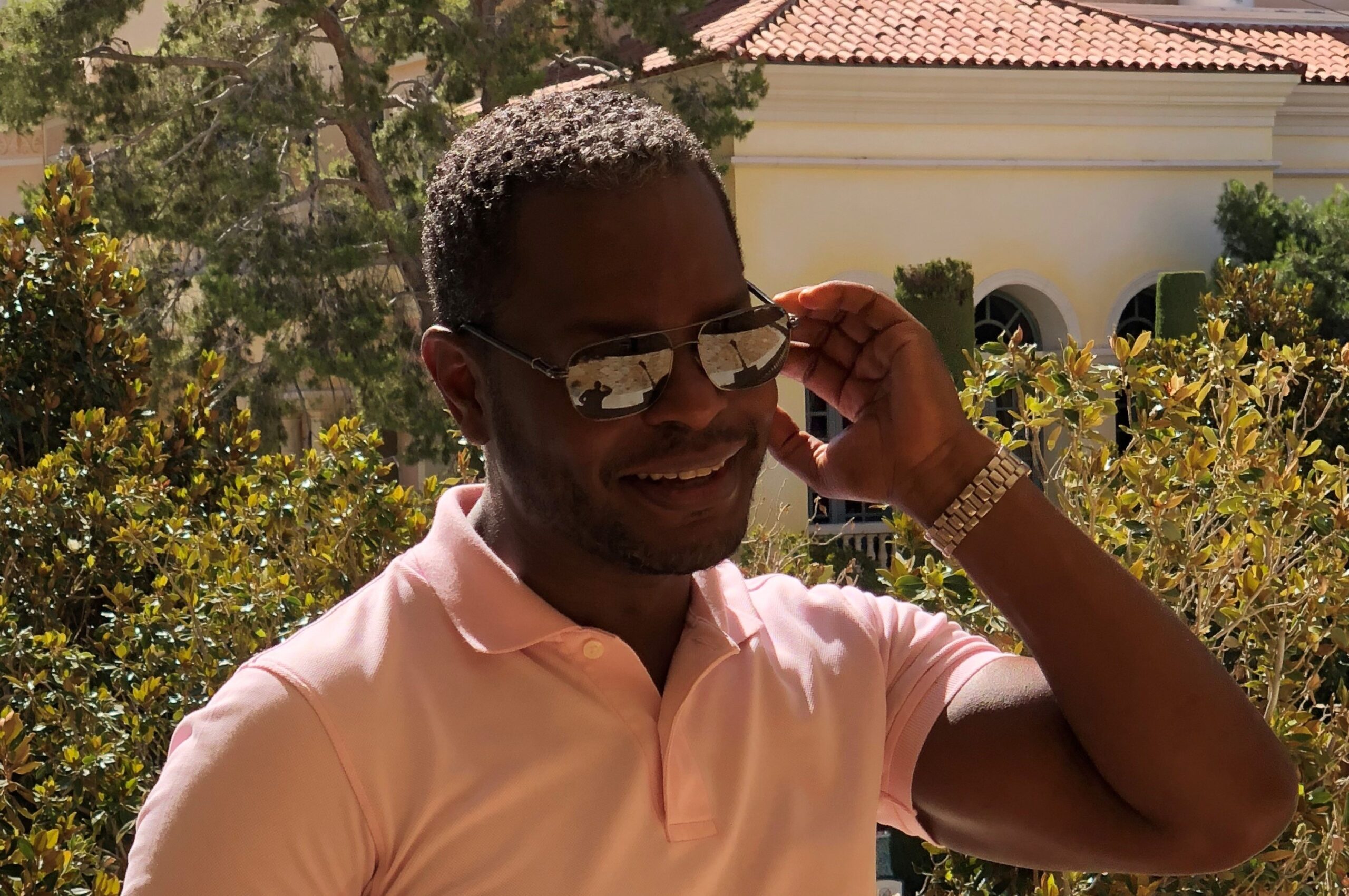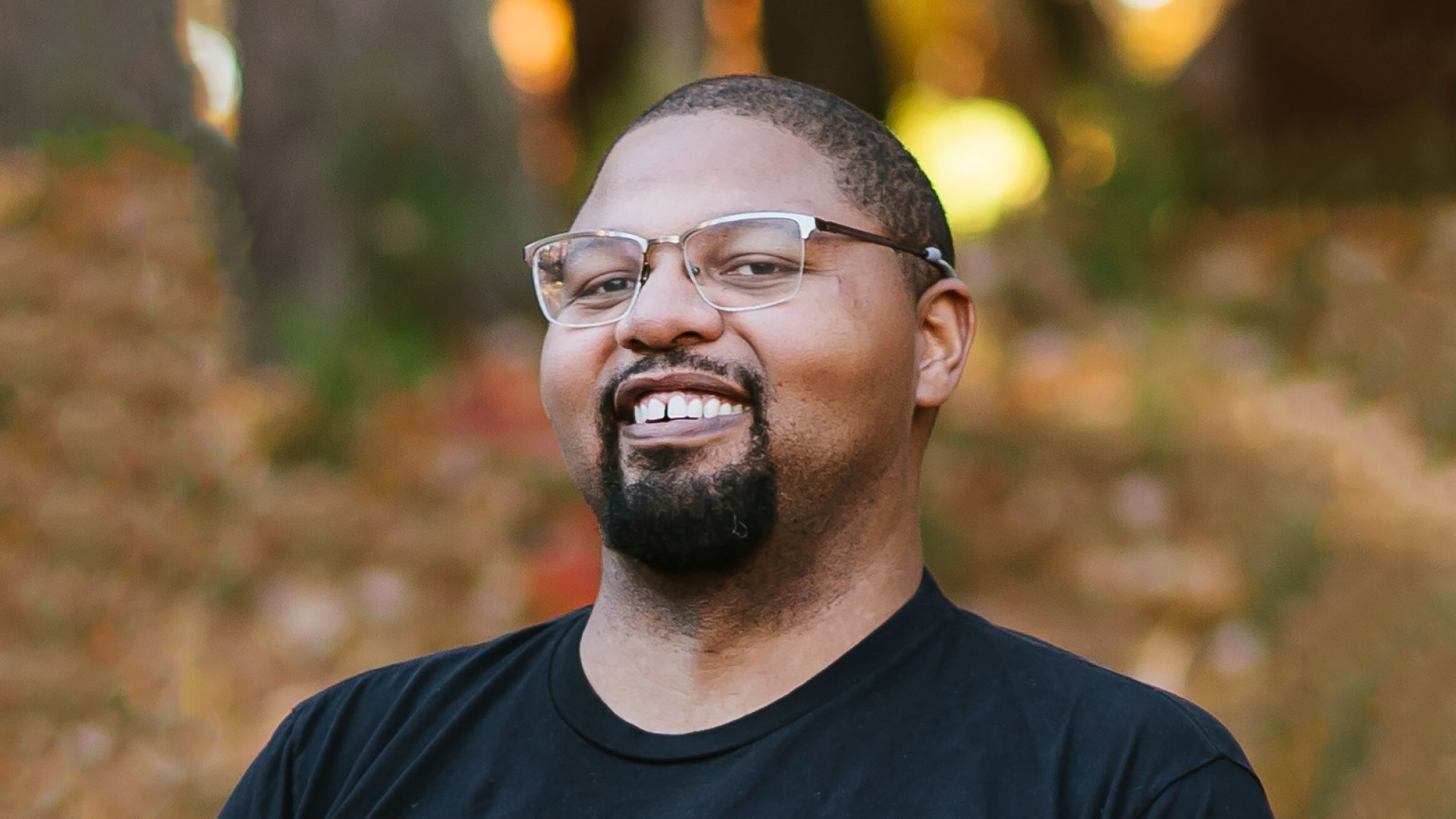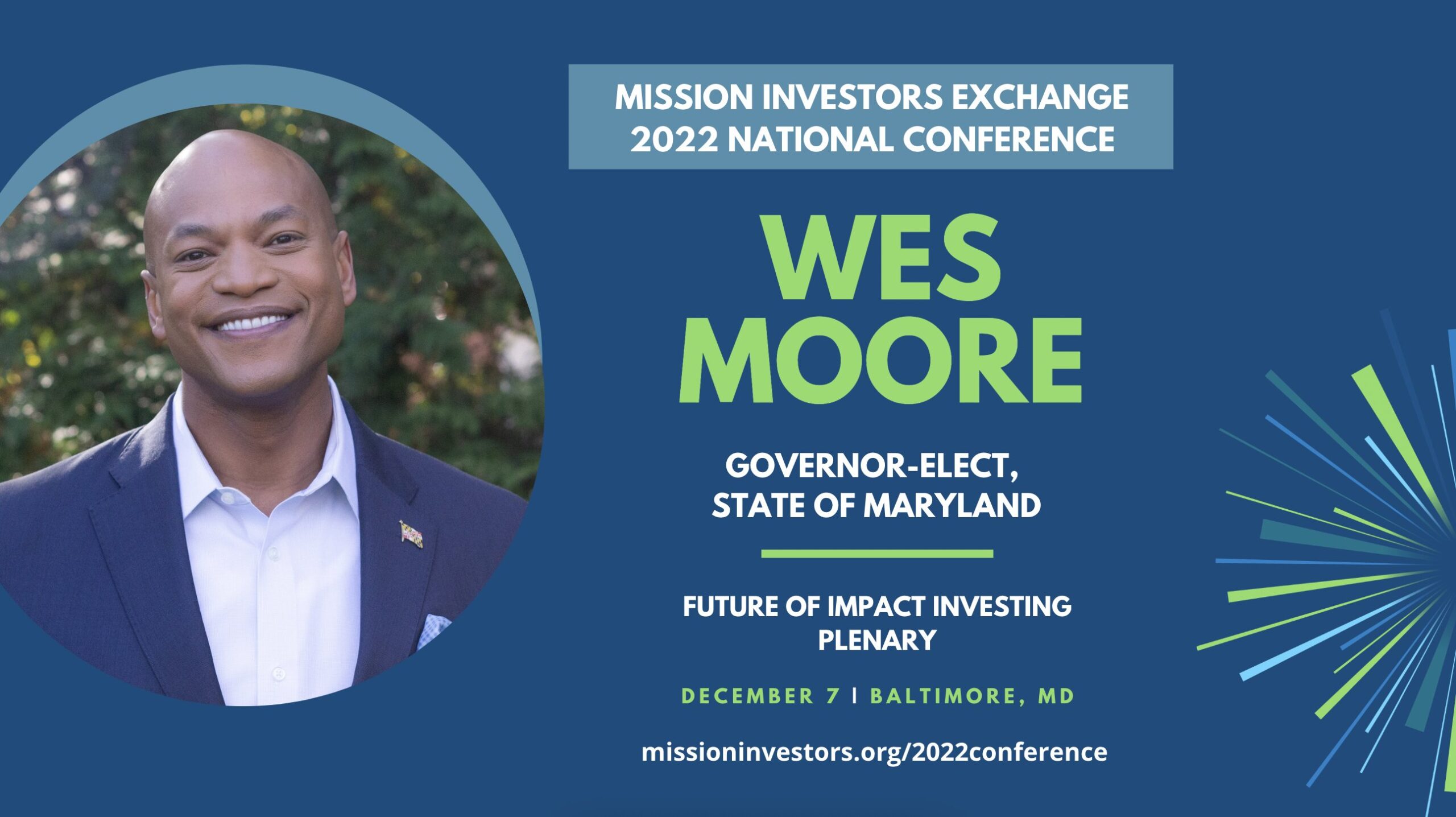ImpactAlpha, July 28 – When confronted with the reality that her 11-year son, a young Black man in America, had seen George Floyd’s death on video, Asahi Pompey made a choice: “I need to step into this as a mom and to step into this as a leader.” Pompey was in a position to lead. She’s cut an uncommon path as an immigrant from Guyana to become the global head of corporate engagement at Goldman Sachs and the president of the investment banking behemoth’s foundation. At a company-wide town hall following Flyod’s murder, she told thousands of staff that privilege and wealth do not protect their Black colleages from prejudice and racism. Shortly after, she helped Goldman stand up the $10 million Fund for Racial Equity. In March, Pompey led the launch of the $10 billion One Million Black Woman initiative, which aims to invest in the key moments of women’s lives to impact one million Black women by 2030.
“We wanted to do something that was big,” Pompey told Monique Aiken, ImpactAlpha contributing editor and host of The Reconstruction podcast, who interviewed Pompey at the Stern Women in Business Conference (watch the full video). “Perhaps most importantly, we wanted to do something that was not episodic, that was going to be consistent and persistent over time, not a flash in the pan.” In a wide-ranging interview, edited and trimmed for brevity, Pompey shares how Goldman Sachs is responding to calls for racial and gender equity. Since announcing it would not take any company public that didn’t have at least one diverse board member (soon to be two diverse board members), for example, Goldman has been helping companies recruit women candidates by rewriting selection criteria. “This feels like we’re in a historic moment,” Pompey told Aiken. “We’re trying to be part of the solution.”
Monique: I think we’ll begin at the beginning, who is Asahi?
Asahi: I grew up in South America in Guyana, and my family of seven immigrated to the United States when I was 10. We came to Brooklyn, New York and for anyone who lives in Brooklyn or knows Brooklyn well, the corner of Foster Avenue and Nostrand, in the Vanderveer housing project. And all seven of my family moved in with my Aunt Eglantine, who is phenomenal. We all moved into her one bedroom apartment, where she and her husband and her son lived. In some ways, I think it’s a very American story. A very immigrant story, in terms of coming to this country and then growing from there.
Monique: When you think about where you went to school and what that opened up for you, and you ended up on Wall Street – that’s maybe an atypical path for some people who began, where you began. What were some of the key lessons along the way?
Asahi: I went to Columbia and really loved my years there, I grew a lot, and landed at Cleary Gottlieb Steen & Hamilton. Lo and behold, what amazing IPO was Cleary working on, but the IPO of Goldman Sachs. I remember sitting at my desk and I got an email from the managing partner of Cleary. And he sent it out to the entire firm, and it said that the preeminent law firm on Wall Street is working on the IPO of the preeminent investment bank on Wall Street.
And I thought to myself, Cleary has a lot of amazing clients. So, it’s not every day when they get a book of business that the managing partner sends out an email to the entire firm about this particular book of business; I said this is special. And this will tell you a lot about my personality. I remember sitting at my desk saying, “Okay, how do I get on this Goldman IPO? What do I have to do?” And, I started working the halls, asking “Are you working on the Goldman IPO? Who’s doing it?”
I thought, “I want to be a part of this, I want to be in that moment, I want to feel like I’m contributing. It sounds like it’s going to be fantastic.”
Turns out, I worked on the Goldman IPO, for a moment in time, and then I went to Germany to work on the Bankers Trust, Deutsche Bank merger and lived in Germany for a year. But, ultimately my path was to cross with Goldman Sachs again, 15 years ago when I was hired at the firm.
Monique: In your 15 years at Goldman Sach, you’ve traveled an uncommon path inside of an uncommon path. As you think about now overseeing all of Goldman’s community impact and philanthropy efforts, what were the transitions like for you? Did you seek them out or did they come to you?
Asahi: In terms of the role that I have currently, I loved working as a lawyer and compliance officer. This opportunity came up because I got a call from the Executive Office and they said, we’ve seen the work you’ve been doing in the space that you’re in, and we think that you would be a fantastic person to become President of the Foundation and Global Head of Corporate Engagement. If I had sent my resume at the time out across the street and said, “I would like to become the President of your Foundation,” I don’t think anybody would have hired me. They would have said, well you have been a Compliance Officer and I don’t quite see this transition. But, that’s the beauty of having experience and capital within an organization. Frankly, credit to Goldman Sachs, they really have sort of a homing beacon for talent. You know, my colleague is doing A, but we can see her doing B, or C, and we’re going to make a bet on them doing that really well. And so, that was what that was in this particular case.
Monique: As you think about the ways that you’ve stretched into this role, you came out with a big splash with the One Million Bllack Woman initiative. And this story is personal for you in some ways. Part of the origin story of that effort was an open letter to your son. Can you share with us a little bit more about how that all came together?
Asahi: George Floyd, as you know, was killed on May 25. Within seven to nine days of that, our CEO, David Solomon, put together a town hall for the entire firm, and he chose to do something important in that town hall, when he chose to have three Black partners of the firm talk about their lived experience as a black person at the firm. Needless to say, that’s not what we do on a daily basis and the firm changed that day. Many people have said that the firm changed that day. Margaret Anadu, who is just kick-ass phenomenal, sorry to curse, a phenomenal fellow partner, who was really the godmother of One Million Black Women, and another partner and I spoke about our experiences, and for me, it was my son.
Four days or so prior to the town hall, he had come in and said, “Mommy, I watched the George Floyd death on video.” And, I should know, he has a phone, that that would have happened. We discussed it, but I didn’t think he’d actually seen the video. It was one of these moments in life where you think, I have a choice. I need to step into this. I need to step into this as a mom and to step into this as a leader. It was almost like this loss of innocence of my 11-year-old, at the time, thinking about him seeing this and also having to explain some harsh realities about life as a young Black man in America. I wrote a number of things that I thought our audience at a Goldman Sachs level needed to know in that letter to him. One is: privilege and wealth don’t protect you from prejudice and racism. Some people think it’s somehow insulating. You’re an executive.. you went to the right schools.. you have more money. But none of that matters. At the end of the day, prejudice and racism will find its way in whatever setting that you’re in. That was a tough thing for me to explain to him. That as a young boy, a good boy, some people may get scared of you. And you’re a good boy, but you may be followed in a store. But, it’s not about your personhood and [you need to] walk in your power. And so, we talked about that. And then, on the back of that, we launched the Racial Equity Fund.
Then we wanted to do more, we wanted to do something that was big. We wanted to do something that was going to be impactful. Perhaps most importantly, we wanted to do something that was not episodic, that was going to be consistent and persistent over time, not a flash in the pan. It had to feel humble and authentic. A listening, and hearing Goldman Sachs, a learning Goldman Sachs, a pivoting Goldman Sachs; and we launched One Million Black Women, as you said. For everyone, it is a $10 billion commitment, the largest ever in the United States specifically focused on black women, to impact the lives of at least a million black women, by the year 2030.
Monique has all the good questions, so I know she’s gonna ask this, which is, how is that done? In brief, we’re following along the arc of a black woman’s life and we’re investing at key moments. These key moments where we’re investing, are the key moments of any woman’s life, and any person’s life. So, we’re thinking about, as a little girl, did she have a chance to go to a pre-K program where she’d learned to read by six or seven? Then, what about health care? Is she able to get dental care and appropriate medical care? Even going back to when she was in the womb. Technology, broadband, education, health care, housing; black women are more likely to live in unsafe housing, which is the plumbing, water, electricity, things like that, so that’s part of our commitment and I’m excited about it.
Monique: Another idea that’s certainly growing, impact/ESG/Responsible Investing, there’s momentum there, at least I think so. As a member yourself of the Sustainable Finance Committee, how do you see that going and intersecting with some of the other work? And is this momentum that I perceive real?
Asahi: This question is one that keeps me up at night. Mainly, is this a false dawn, or are we really seeing real change that’s going to be sustained over time? Certainly Goldman Sachs is driving in that direction and that’s part of our commitment.
But, I don’t know. Right now, if you look at vaccination rollouts and a whole number of things you think, well, maybe it’s not as it should be. In other areas, you say, well no, things are really going to be different and going in the right direction.
I’m an optimist, and I’m also a worker at heart. And so I think optimism, combined with working hard, we can accomplish a lot. And so, I choose to think this is not a false dawn. That history very often doesn’t feel historic when you’re sitting in it, you realize it, on reflection. But this feels like we’re in a historic moment, aside from the pandemic, more generally, in terms of what we’re seeing throughout our society. And I’m motivated by frankly the women’s revolution; by women in all corners and sectors of the world, who are mobilized and so I’m excited about that.
And not only what we’re doing, but what’s happening echoes across our competitors, and nonprofit leaders that I speak to in different sectors, of politicians that we engage with; a moment of real change and I’m excited to see those changes succeed. But here’s what I would say, and it’s a call to action to every single one of us, the hundreds of you that are on today. We have to be intentional about it. It won’t happen on its own. And we’ve got to be the ones that are pushing the levers. A lot of this is a struggle. Struggles go through periods where there’s intense focus, and then other things take preference. So, you must have the real doers, who, whenever the public attention may be going elsewhere, are still deep in the work and committed to the work.
Monique: It’s so important. In the impact industry, we talk about the need for intention and additionality to define these outcomes that we say we need. We have to stay on it because it doesn’t happen on its own. In ImpactAlpha parlance we call that “impact on.” You know that phrase “risk off, risk on” that those in the financial services talk about. Are we now “impact on”?
Asahi: Yes. Our CEO David Solomon, at Davos a couple years ago, announced that we would not take any company public, that didn’t have at least one diverse board member, and that’s moving to two diverse board members, of which one must be a woman. I was not at Davos with him. When I was sitting in my office at 200 West Street the day that we knew he was going to announce this. And I have TVs in my office that track the markets and what’s happening. David was across every single channel, and it was just this groundbreaking moment where people were like, “Goldman Sachs is doing what? How will this affect their bottom line? They’re not going to take companies public? Should corporations be doing this? What will their clients say?” And the reaction has just been phenomenal, and in particular, from our clients. Our clients have embraced it and our clients have said, “Help us. Help us find more diverse board members.” We’ve been building a small group within the firm on the back of that announcement that’s doing exactly that. Not only saying we want to IPO companies. We’re trying to be part of the solution. If this is a pipeline issue, we know phenomenal women that we want to bring to your attention that could potentially serve on boards.
And by the way, we want you to break up how you’ve been thinking about it. Has she previously served on the board of a public company? Well, she has to serve somewhere to be the first. To make that our criteria all the time is not inherently unworkable. And to think about different sectors, so breaking up how we’re thinking about that criteria has also been the work that we’ve been doing. As exciting as the initial announcement and the policies have been, for us internally, to take you a bit behind the scenes, it’s been exciting to see what’s emerged from it. Not only saying we will IPO companies, but we’re going to be a force for good and help women and diverse people on the boards of your companies we’re taking public. And by the way, you will know this probably better than I do, but diverse boards perform better, post-IPO. So there is a business case for diversity, it’s been proven by the data time and time again.
Monique: We’re going to move quickly into a lightning round. These are just meant to be super fast and tweetable. What’s your favorite mood boost song that gets you pumped, maybe you listen to it on your walks, or something like that, and what song gets you instantly into a chill mode?
Asahi: Pump up the Volume. And chill mode: You’re Beautiful.
Monique: What is the title of the book that you would write, or maybe you already have one in draft?
Asahi: Girls Rule.
Monique: And who is one leader that you admire?
Asahi: I think our CEO, David Solomon, and I’m not just saying that. I think he’s doing things in a very different way. And I think about the One Million Black Women initiative and how personally he’s been behind it. I admire him tremendously.
Monique: What’s your favorite quote?
Asahi: I would say, rain doesn’t fall only on one house, rain falls on every house. Into every house, some rain will fall.

